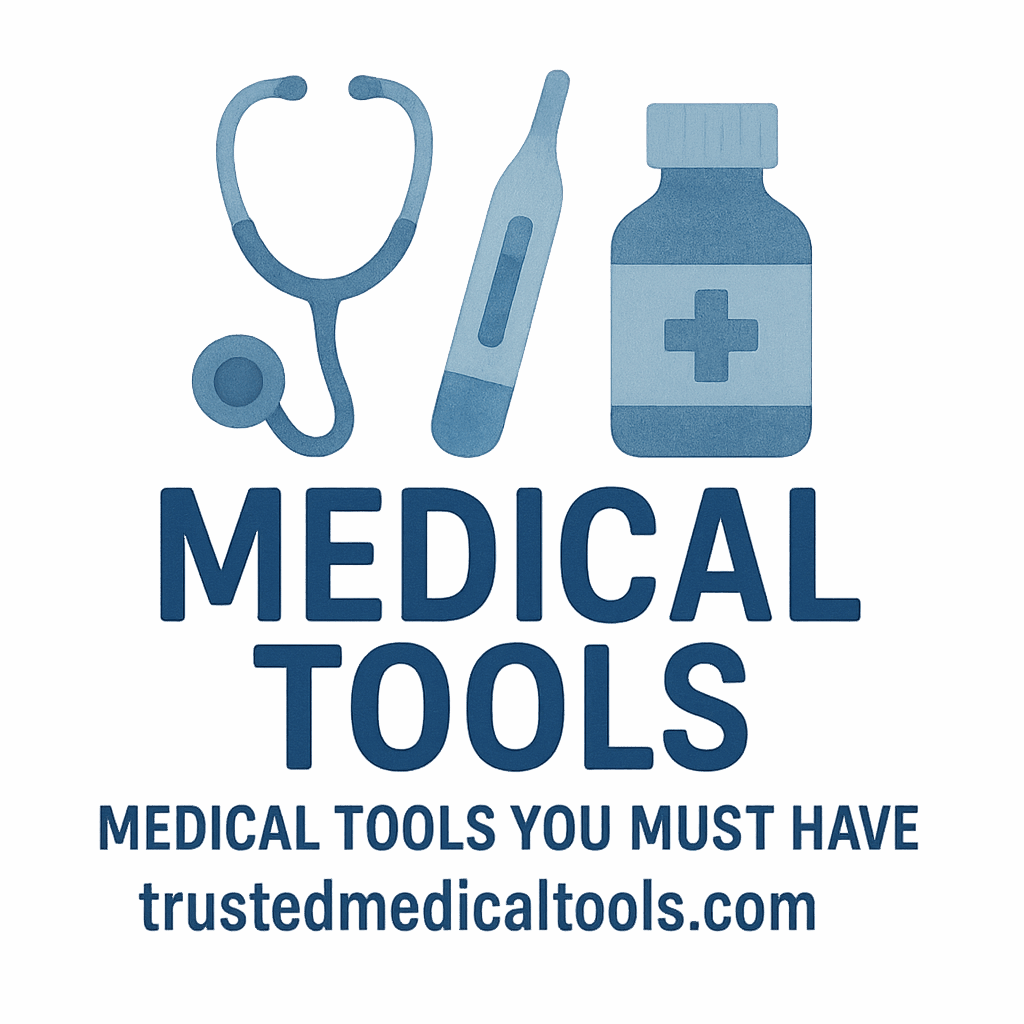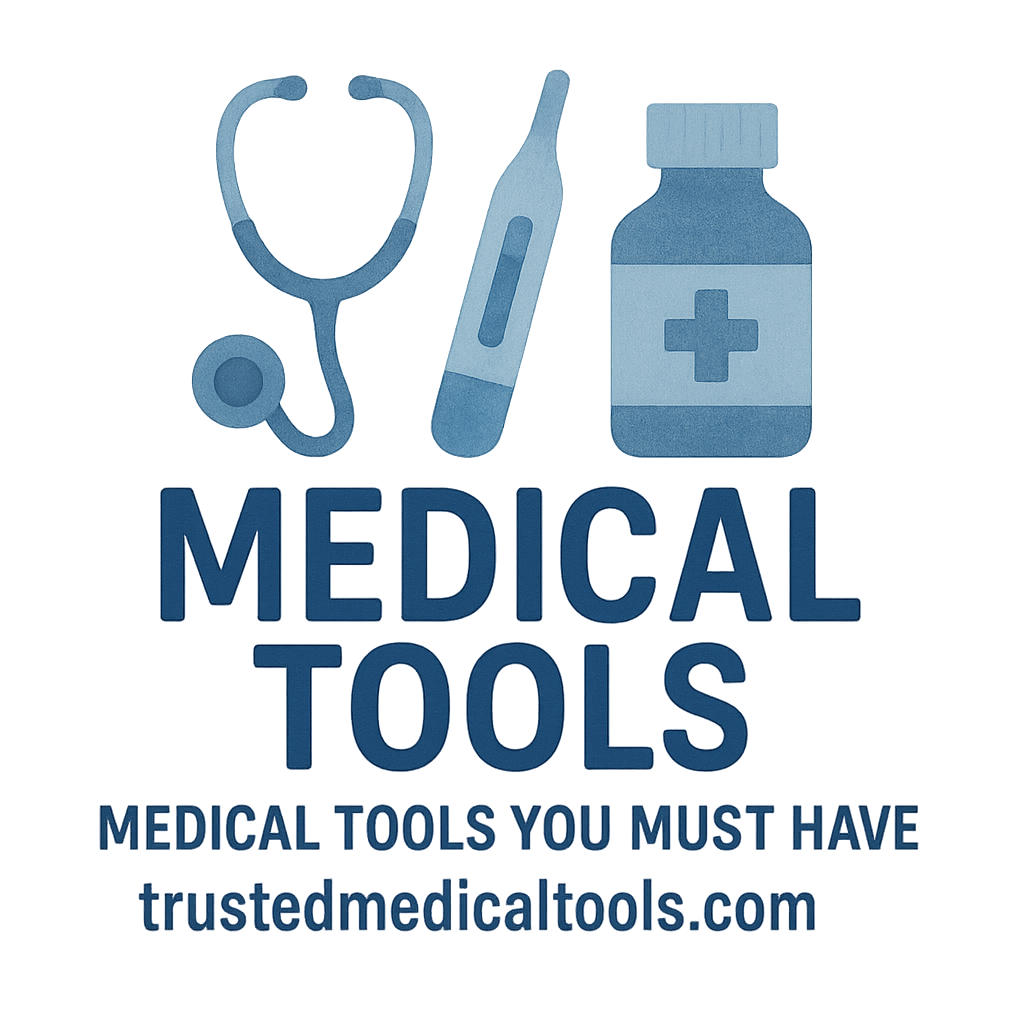Introduction
Over-the-counter (OTC) medications are a staple in home health care, offering a convenient way to address a variety of ailments. However, while these medications can certainly help with many common health issues, their effectiveness can be enhanced when used alongside certain medical tools. These tools not only offer greater accuracy in monitoring your health but also provide a more comprehensive approach to managing various conditions. In this article, we’ll explore eight medical tools that work well with OTC medications and can help boost your overall well-being.
The Importance of Complementing OTC Medications with Proper Tools
When it comes to health care, no tool or medication works in isolation. Using medical tools that complement OTC medications can make a world of difference in improving health outcomes. Whether you’re managing pain, monitoring chronic conditions, or ensuring your family’s health is in check, the right tools will provide you with real-time insights and a more effective treatment plan.
Let’s dive into the tools that can take your OTC medications to the next level.
1. Digital Thermometer
How It Works with OTC Medications
A digital thermometer is essential for measuring body temperature accurately. Whether you’re dealing with a fever, flu, or an infection, OTC fever reducers like acetaminophen or ibuprofen can help lower a high temperature. However, knowing exactly when your fever goes down or spikes is crucial to ensure proper medication usage and timing.
Best Digital Thermometers for Home Use
Some of the best digital thermometers available today come with features such as fast readings, memory recall, and high accuracy. Popular choices include the iProven DMT-489, a highly-rated thermometer known for its speed and accuracy, and the Vicks ComfortFlex thermometer, which offers easy-to-read results in seconds.
For more health-related devices like thermometers, check out Trusted Medical Tools, your go-to resource for quality medical equipment.
2. Blood Pressure Monitor
Understanding Blood Pressure Medications and Tools
Blood pressure medications like diuretics, ACE inhibitors, and beta-blockers are commonly used for managing hypertension. These medications work best when paired with consistent monitoring of your blood pressure. A blood pressure monitor gives you the real-time data you need to know how your medication is affecting your body.
Top Blood Pressure Monitors You Can Use at Home
When selecting a home blood pressure monitor, it’s important to choose one that is both accurate and easy to use. Some of the best options are the Omron Platinum Blood Pressure Monitor and the Withings BPM Connect. These devices offer precise readings and sync with mobile apps for easy tracking of your blood pressure over time.
Explore more about monitoring devices to find the best tools for your health journey.
3. Pulse Oximeter
Why Pulse Oximeters Matter in Home Health Care
A pulse oximeter measures the oxygen saturation in your blood, providing valuable information for individuals using medications for respiratory issues. These devices are especially useful when paired with OTC remedies for colds, asthma, or bronchitis. By monitoring your oxygen levels, you can ensure that your respiratory treatments are working effectively.
Pulse Oximeters for Complementary Use with OTC Medications
Some popular pulse oximeters include the Wellue O2Ring and the iHealth No-Touch Pulse Oximeter. These devices are easy to use and offer instant readings, helping you manage your respiratory health alongside your OTC medications.
For more related tools, visit Trusted Medical Tools to find everything you need for your wellness.

4. Glucometer
Managing Diabetes with OTC Medications and a Glucometer
For individuals with diabetes, using a glucometer to check blood sugar levels is a routine task. While OTC medications like metformin can help regulate blood sugar, it’s important to track how your body is responding. A glucometer offers the accuracy needed to make informed decisions about your diet, exercise, and medication.
The Best Glucometers on the Market
Some excellent glucometers that provide fast and accurate readings include the Accu-Chek Guide and the OneTouch Ultra 2. These devices are ideal for home use, offering features such as memory storage, smartphone integration, and ease of use.
You can also learn more about diabetes management tools on Trusted Medical Tools.
5. Thermometer Strips for Pain Relief
How They Enhance the Effects of OTC Painkillers
Thermometer strips are a quick and efficient way to monitor body temperature when using OTC pain relief medications. They can also be used alongside topical pain relief creams or patches to assess how well your body is responding to the treatment.
The Benefits of Using Thermometer Strips
Thermometer strips, like the Thermometer 3M Littmann Stethoscope Strip, can be easily applied to the body and show real-time readings. They are ideal for individuals who need to constantly monitor their temperature while using OTC painkillers.
6. Nebulizer for Respiratory Support
Benefits of Nebulizers with OTC Medications for Respiratory Issues
A nebulizer is a medical device that helps deliver medication directly into your lungs through mist inhalation. When used with OTC treatments for asthma, allergies, or bronchitis, a nebulizer can significantly improve the efficacy of your respiratory medication.
How to Choose the Right Nebulizer for Home Care
The Philips Respironics InnoSpire Essence Nebulizer and the Omron NE-C801 are both top-rated options for home use. These devices are easy to set up and can help you manage your respiratory health in conjunction with OTC treatments.
Find more resources on respiratory health tools here.
7. First Aid Kit
Combining OTC Pain Relief with a Comprehensive First Aid Kit
Having a fully stocked first aid kit at home is essential, especially when you’re using OTC pain relief medications. A good kit should include bandages, antiseptics, gauze, and pain relief creams, along with other essential items to address minor injuries or ailments that may require OTC medications.
Essential Items in a First Aid Kit for Home Health Care
Key items in a home first aid kit include OTC medications such as ibuprofen, aspirin, and antihistamines. Combining these with tools like bandages, cold packs, and antiseptic wipes can provide a comprehensive solution for treating injuries and illnesses at home.
Explore first aid essentials in detail on Trusted Medical Tools.
8. Heating Pads and Cold Packs
Pain Management with OTC Medications and Temperature Therapy
Heating pads and cold packs are often used alongside OTC medications for pain relief. Whether you’re using them for muscle soreness, joint pain, or menstrual cramps, the combination of temperature therapy and OTC treatments can provide effective pain relief.
Choosing the Right Heating Pad or Cold Pack
For those seeking reliable options, the Sunbeam Heating Pad and the Thermacare Cold Packs are great choices for at-home pain management. They work well in conjunction with medications like acetaminophen or ibuprofen.
For more tools on pain management, visit Trusted Medical Tools.
Conclusion: How to Build a Complete Home Health Care Routine
Incorporating medical tools into your home health care routine can enhance the effectiveness of OTC medications and improve your overall well-being. By monitoring your health accurately and having the right tools on hand, you can stay ahead of any potential health concerns and ensure your treatment plan is working effectively.
Remember, OTC medications are just one part of your health journey—pair them with the right tools for a comprehensive approach to your wellness.
FAQs
- Can I use a digital thermometer while taking fever-reducing OTC medications?
Yes, a digital thermometer will help you monitor your fever while using medications like acetaminophen or ibuprofen. - How does a glucometer work with OTC diabetes medications?
A glucometer helps track your blood sugar levels to see how well your OTC diabetes medications are working. - Are pulse oximeters useful for those taking OTC cold medications?
Yes, a pulse oximeter can help monitor your oxygen levels when using OTC cold medications, ensuring your respiratory system is functioning well. - Can a nebulizer replace OTC medications for asthma?
No, a nebulizer is a complementary device that enhances the effectiveness of your prescribed or OTC asthma medication. - Should I rely solely on a blood pressure monitor or use medications too?
A blood pressure monitor is essential for tracking your blood pressure, but it should be used in conjunction with any prescribed or OTC medications for hypertension. - How often should I use a heating pad with OTC pain relief?
You can use a heating pad several times a day for pain relief, especially when combined with OTC medications for joint or muscle pain. - What is the best way to build a home health care routine?
Combine the use of OTC medications with reliable medical tools like a thermometer, blood pressure monitor, and first aid kit to create a well-rounded routine.


